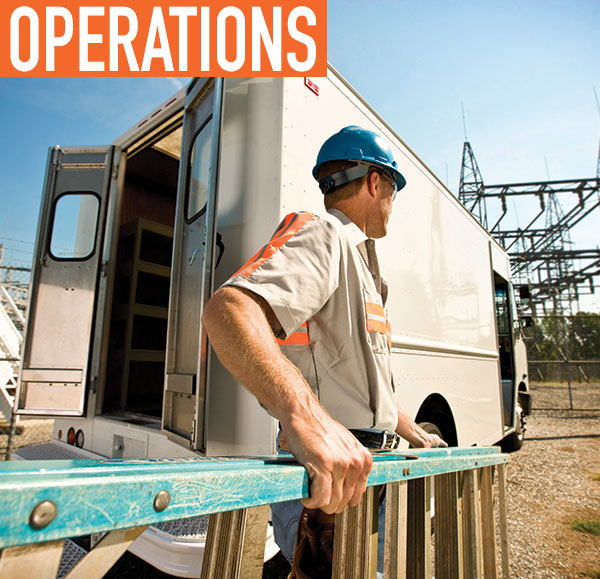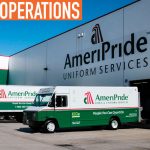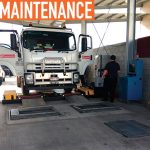Let’s face it: Selecting new vehicles for your fleet is a daunting task. You have a hundred factors to consider and each is a trade-off to another. While some decision-makers turn to simple purchase price—or even total cost of ownership (TCO) tools—to help them take costs into account, the team at Freightliner Custom Chassis Corp. (FCCC) is seeing a trend indicating that many fleets are choosing trucks based solely on purchase price or calculated lease payments. That’s why FCCC focuses on RCO: the Real Cost of Ownership.
WHAT IS RCO?
RCO strives to offer a comprehensive overview of all costs associated with vehicle ownership, including “soft” or less tangible costs, such as driver retention, after-the-sale service, and vehicle quality. These factors can be hard to quantify, but they can and do influence the real cost of ownership—and may well steer buyers to a different truck than they would choose based on the price tag.
It’s the same concept applied when choosing any other product; you weigh bargain-basement Item A against a more expensive Item B. When it comes to fleets, number crunchers often take a step back from purchase price to factor in fuel prices, vehicle depreciation, maintenance, interest expenses—the standard checklist. Unfortunately, they often stop there.
The challenge is that Item A vs Item B isn’t an apples-to-apples comparison. What is it that drives the difference in cost? It could be anything from materials and manufacturing practices to telematics technology, specific features, and expected lifespan. While some considerations are common across fleets, the reality is that there will be needs specific to your business. Those factors are what RCO sets out to help you identify.
A TELLING TREND
During the economic downturn, a number of large, respected companies pulled the trigger on buying new vehicles almost entirely based on purchase price. Now, the fleet managers of those companies are raising a red flag as maintenance costs skyrocket, vehicle downtime increases, and efficiency decreases. It’s easy to see the pendulum swing back toward broader discussions because these vehicles are not delivering the value their buyers expected.
It’s important, then, that these customers consider their RCO. Because needs vary, RCO will be different for every company, so interdepartmental conversations and education are keys to connecting the dots. To that end, FCCC has gathered talking points to help you assess your RCO. These talking points fall under the broad umbrellas of safety, quality, uptime and fuel options, and efficiency.
- Safety: As the need for drivers continues to impact the industry, driver retention and safety have become of paramount importance. What does a driver need to stay engaged and safe? Ergonomically smart seats and enhanced maneuverability are a great start to ensuring your drivers are alert and confident behind the wheel. And, did you know that 90% of accidents happen during the 1% of the time your drivers are backing up? That’s where greater wheel cut and turning radius play a role, helping to prevent accidents caused by too much backing up. Heavy-duty braking and suspension systems ensure you leave nothing on the table in terms of safety over the life of the truck.
- Quality: Quality issues translate directly to maintenance, downtime, and resale value. Manufacturers take drastically different approaches to choosing the components that make up their vehicles. Take a close look under the hood or at the suspension of a medium-duty truck and you’ll see that some manufacturers rely on automotive-grade parts that are not designed to hold up in a commercial environment. FCCC could give you a long list, but two components in particular come up over and over again: transmissions and brakes.
• Transmissions: For a transmission to last as many miles as a commercial truck racks up over its lifespan, an automotive style won’t cut it. Transmission repair and replacement is a real-world expense you might not consider. FCCC chooses Allison Transmissions for its medium- and heavy-duty trucks because they have a reputation for lasting a hair shy of forever.
• Brakes: It’s unfortunate that many people assume brake corrosion and damage from road debris are the norm. But, attention to detail in construction can help to prevent both. Shielding the ABS system, for example, or using anti-corrosion brake calipers and brake lines—even routing brake lines so they’re less exposed to road chemicals. These simple construction strategies can make a big difference when it comes to brake longevity. - Uptime: It’s been estimated that a single day of downtime for one truck can cost up to $1,200 in lost revenue. An RCO consideration is this: Which vehicle will ensure the fastest repair turnaround time to maximize uptime? Quality components certainly factor into this, as does manufacturer support; FCCC’s 24/7 direct hotline and mobile app, for example, give your fleet around-the-clock access to more than 450 Freightliner service locations throughout North America—so you’re never far from a technician with the skills to get you back on the road.
- Fuel options and efficiency: Gas vs diesel vs alternative fuels—it’s a never-ending cost debate. A critical question for your fleet is how you intend to use a new truck. FCCC recently saw a prospective customer choose a diesel for a refrigerated truck in a short, stop-and-go application. Because of the short distance between stops, the exhaust temperature did not become high enough to facilitate an automatic particulate filter regeneration, which resulted in the service/maintenance staff requirement to perform frequent manual regenerations to clean the exhaust after treatment system. This helps drive home the comprehensive nature of RCO—in this application, maintenance costs need to be considered to ensure processes are in place to properly service the truck and eliminate vehicle downtime.

Featured Image: With FCCC, you can count on a heritage of engineering excellence for fuel efficiency across the board.
Above: FCCC’s S2 chassis is available for gas, diesel, propane, or CNG fuels, allowing you to stock the same parts for each.
A detailed analysis of the route, application, duty-cycle, and annual mileage is necessary to determine the right fuel type and powertrain that is most compatible to meet the expected long-term needs.
A diesel platform will work very well in an application with higher annual miles with increased fuel economy and durability at least 15-20 years, if not for the life of the truck. This is compared to a gasoline platform that may be better suited for high stop-and-go applications that do not require longer mileage routes.
No matter which fuel you choose, you want to be sure your maintenance department is equipped to handle repairs. FCCC’s MT chassis is available for gas, diesel, propane, or CNG fuels, allowing you to stock the same parts for each. This can help you take advantage of the right fuel for your application and strategy, while keeping your maintenance and service costs low. Furthermore, you can count on a heritage of engineering excellence for fuel efficiency across the board.
THE BOTTOM LINE
These are only a few of the heavy-hitting questions FCCC sees a need for across the industry. Before fleet decisions are made, start conversations through all departments and levels of your organization to ensure you’ve accounted for all the outlying factors of RCO. Your fleet depends on it.
FOR MORE INFORMATION:
Find out more about Freightliner Custom Chassis Corp., visit
www.freightlinerchassis.com.
_______________________________________________________________________
MODERN WORKTRUCK SOLUTIONS: AUGUST 2016 ISSUE
Did you enjoy this article?
Subscribe to the FREE Digital Edition of Modern WorkTruck Solutions magazine.
![]()




